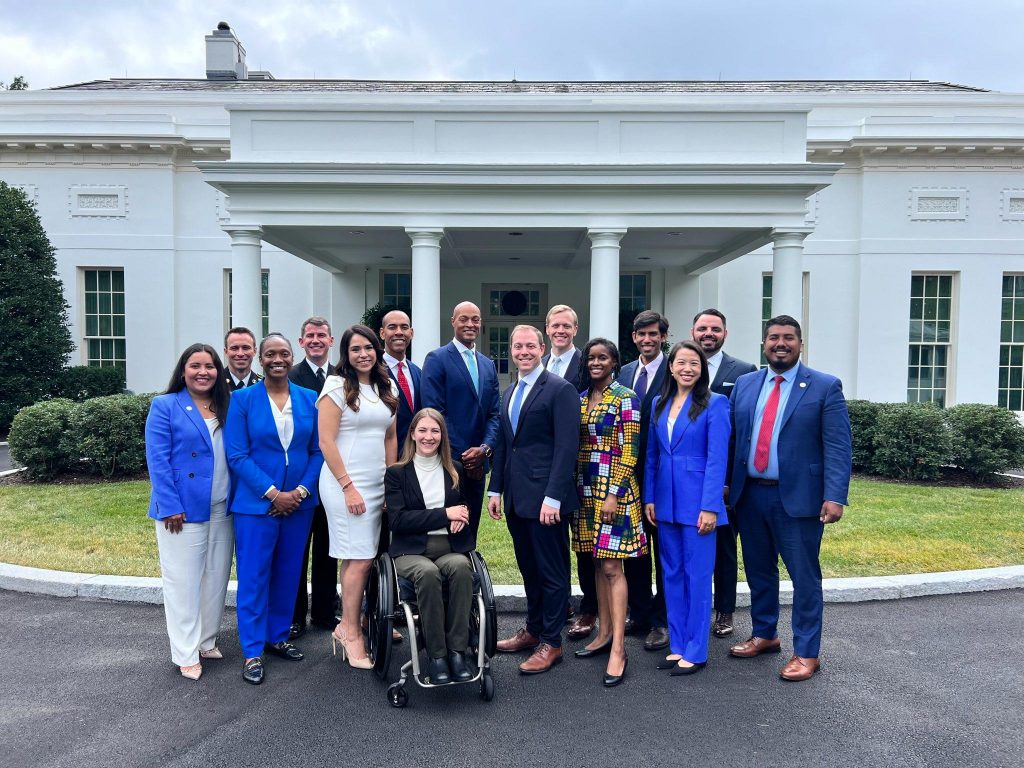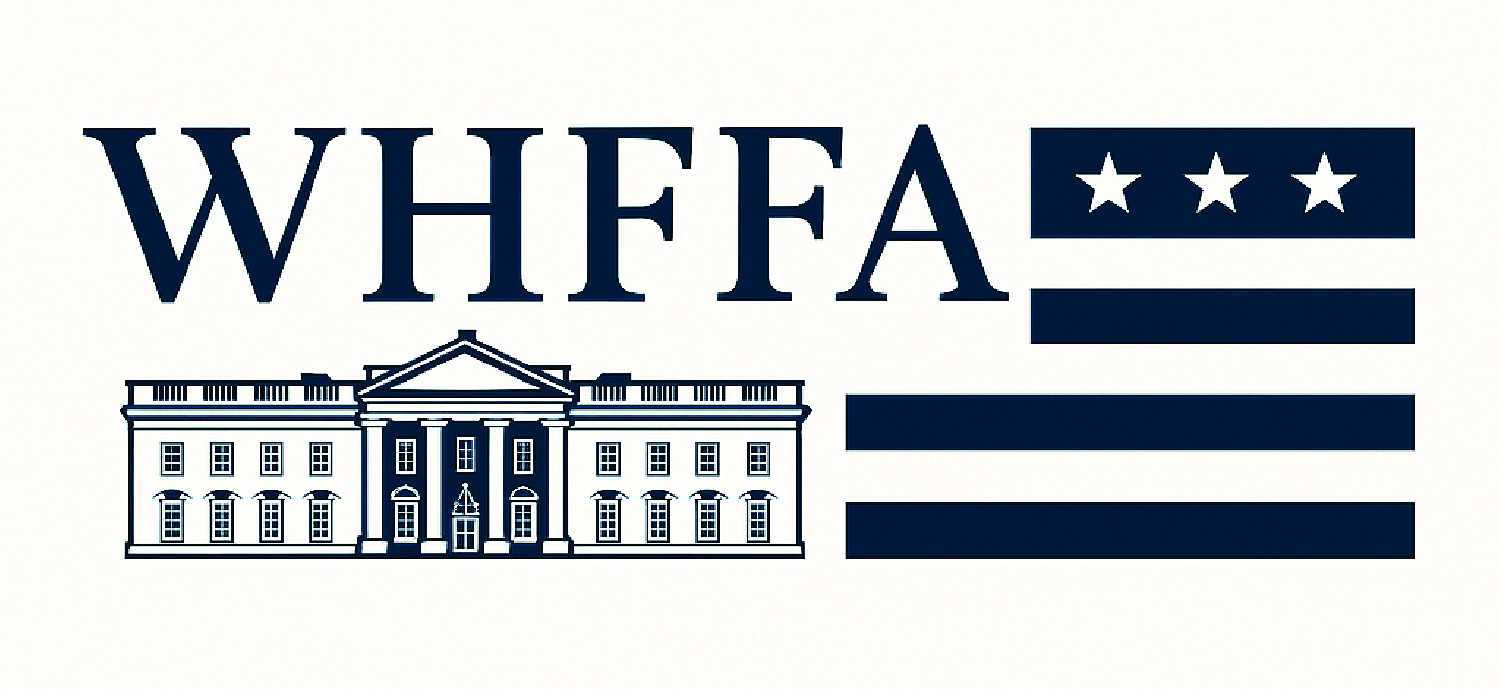WHF Profile: Makini Chisolm-Straker (2022-23)

Can you tell us about yourself and your work before the White House Fellowship?
My graduate degrees are in healthcare and public health. My work focused on invisible populations and centered the expertise of invisibilized populations (e.g., survivors of labor trafficking, trans and genderqueer folks) in response interventions. Prior to WHF, I served and learned all over the world, especially in the “global south.” I served in acutely and chronically resource poor settings due to conflict, pandemic, colonization, and so on. I also worked to maintain my own joy, which is what motivates me: that all people should live in joy. I play rugby, have a set of movie-buddies, enjoy streaming/binge-watching, annually attend (and cosplay at) New York’s Comic Con, and my favorite cuisines are Mexican and Corean. Â
How did you hear about the White House Fellows Program and what made you decide to apply?
My friend, Dr. Marwah Abdallah, strongly recommended the program to me. She understood that my purpose had grown from response work to prevention work, the latter of which requires domestic policy remaking. I thought she was (kindly) gassing me up. After finally listening to Marwah, I investigated and it was clear that the White House Fellows Program would offer me a hypersonic education and relationship-building opportunity in the domestic policy space.
What goals were you hoping to achieve through the Fellows program?
I needed to expand my understanding of and connections in the domestic policy space: what are the particulars of how policy is made and who makes it? What are the ways that I can influence and create policy that is evidence-based and rooted in lived expertise? Who can I lean on for learning, principled guidance, and content-relevant contacts?
Where were you placed and what was the focus of your work?
I am thankful I was placed at my top choice, the Social Security Administration (SSA) under the generous and purposeful leadership of Dr. Kilolo Kijakazi. Dr. Kijakazi wanted my research skills to examine the structural contributors to disability in the U.S., or the structural exclusion of people whose minds and/or bodies are devalued. But given my interest in domestic policy and my diverse content areas of expertise, I was also allowed to serve, with the agency representatives, on the White House’s Interagency Council on Economic Mobility, and the Interagency Council on Homelessness (All INside), as well as offer insights on SSA work on racial and gender equity plans.
What was your fellowship class like?
My class (WHF 2022-2023) is beautiful: We are relatively diverse, with respect to gender, geographic origin, race, ethnicity, immigration experience, employment experiences, age, and so on. I am deeply grateful for our support of each other and readiness to see, accept, and love each other.
What did you do immediately after the Fellowship?
When I applied for WHF, I was also applying for other fellowships and positions. I was able to defer another fellowship to which I was accepted until after I completed WHF. The day after WHF ended, I became a visiting Associate Professor in History, at Yale University’s Gilder Lehrman Center for the Study of Slavery, Resistance, and Abolition. My focus is on policy-based reparations for U.S. Blacks and decolonization/Indigenization; I see reparations as foundational for writing precarity out of U.S. systems and, someday, bringing the nation to the realization of loving, evidence-based equity. In the Spring of 2024, I taught an innovative course on the history of domestic policy in the U.S., and learners developed reparative policies for historically precaritizing policies.
How did the trajectory of your life and work change after the White House Fellowship?
It’s a bit early to tell, isn’t it? I hope WHF will continue to facilitate my ability to meaningfully engage in policy work that repairs policy-based harms to Blacks and Native people. When we collectively do the work to repair harms and get in right relationship, we approach our collective liberation and joy.
Have you and your classmates remained close since your Fellowship year?
I think so, yes. When we’re visiting the same area as where a co-fellow lives, we make time to hang out. One co-fellow even travelled to sit in on one of my seminars at Yale. I catch up, irregularly and comfortably, by phone with another co-fellow. We’re all in text contact. I also stay in touch with other co-fellows/families/partners via email and “snail mail.” We reunited virtually a month ago and have plans for in-person reunions. We share and celebrate each other’s every day and monumental wins, and we lean on each other during struggles.  I am grateful I was selected for this class.
What advice would you give to prospective applicants?Â
WHF is (obviously) a great opportunity but the interview process surprised me. I’m still in touch with, friends with, and supported by people I met during regionals and finals, as well as panelists and commissioners. Relationship-building is a key element in responsible policy-making, empathy-building, and a healthy life. Spend time getting in touch with who you are, what you need from WHF, andwhat you bring to WHF. Be present in every aspect of the application process—I found the written application instrumental in helping me get in touch with these things. Ultimately, this process and practice helped clarify my purpose, regardless of WHF.
